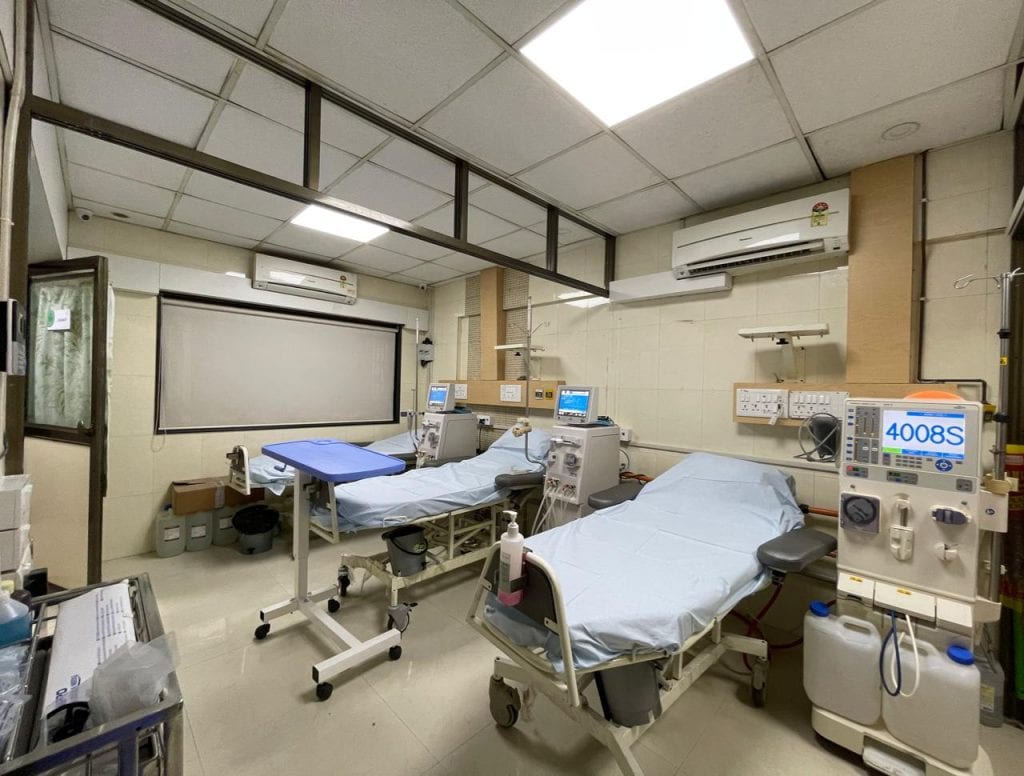Dialysis

FAQs of Dialysis
You need dialysis when you develop end stage kidney failure –usually by the time you lose about 85 to 90 percent of your kidney function and have a GFR of <15.
When your kidneys fail, dialysis keeps your body in balance by:
- Removing waste, salt and extra water to prevent them from building up in the body
- Keeping a safe level of certain chemicals in your blood, such as potassium, sodium and bicarbonate
- Helping to control blood pressure
Usually, but not always. Some kinds of acute kidney failure, also known as acute renal failure, get better after treatment. In some cases of acute kidney failure, dialysis may only be needed for a short time until the kidneys get better.
In chronic or end stage kidney failure, your kidneys do not get better and you will need dialysis for the rest of your life.
Dialysis can be done in a hospital, in a dialysis unit that is not part of a hospital, or at home.
Yes, there are two types of dialysis –hemodialysis and peritoneal dialysis.
In hemodialysis, an artificial kidney (hemodialyzer) is used to remove waste and extra chemicals and fluid from your blood.
Angioplasty and an insertion of the stents might take about a half an hour’s time up to many hours which depends on the nature and extent of the coronary disease.
The time needed for your dialysis depends on:
- how well your kidneys work
- how much fluid weight you gain between treatments
- how much waste you have in your body
- how big you are
- the type of artificial kidney used
Usually, each hemodialysis treatment lasts about four hours and is done three times per week.
A type of hemodialysis called high-flux dialysis may take less time. You can speak to your doctor to see if this is an appropriate treatment for you.
No. Dialysis does some of the work of healthy kidneys, but it does not cure your kidney disease. You will need to have dialysis treatments for your whole life unless you are able to get a kidney transplant.
You may have some discomfort when the needles are put into your fistula or graft, but most patients have no other problems. The dialysis treatment itself is painless.
The doctor discusses the preliminary results of the angiogram before the patient is discharged. There is discussion about the instructions included after the day surgery or about any side effects that you might experience at home. Sometimes, the use of clot-preventing medicines are also prescribed after the process.
If your kidneys have failed, you will need to have dialysis treatments for your whole life unless you are able to get a kidney transplant. Life expectancy on dialysis can vary depending on your other medical conditions and how well you follow your treatment plan.
Yes. You may be on a special diet.
Many patients live normal lives except for the time needed for treatments. Dialysis usually makes you feel better because it helps many of the problems caused by kidney failure. You and your family will need time to get used to dialysis.
